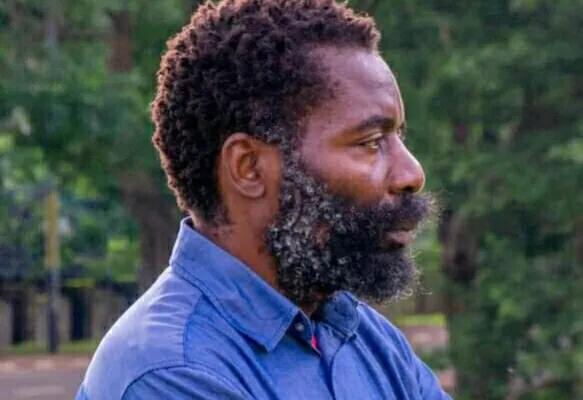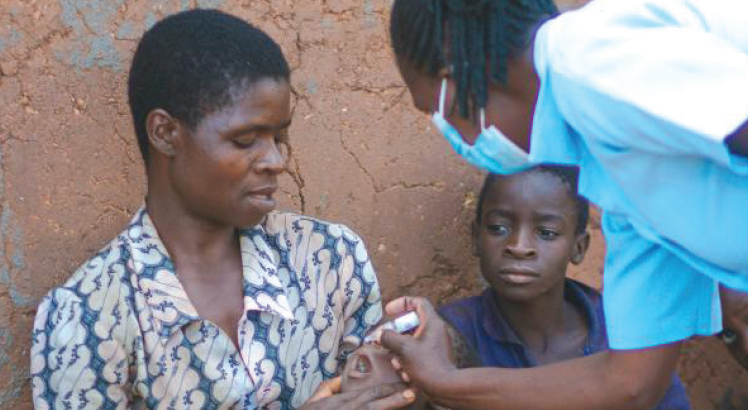The role of the media in any society is to investigate and share information and ideas, in particular on issues of public interest so that the public is informed and able to play its part in political, economic and cultural life.
The liberty of the press has always been believed to be the backbone of civil, political and religious rights. As such, it ought to be protected and promoted at all cost.
In Malawi, just like, around the world, freedom of the press is exercised by many not just journalists.
The spirit of the Access to Information Act enacted in 2017 is to facilitate easy access to information held by information holders and provide protection of persons who release information of public interest in good faith.
Journalist Gregory Gondwe was coerced to reveal his sources after a Police arrest
The right to freedom of the press just as many other rights is a right that is entrenched in the country’s Constitution.
Section 36 of the Constitution states that the press shall have the right to report and publish freely, within Malawi and abroad, and to be accorded the fullest possible facilities for access to public information.
The right to freedom of press is also intertwined with the right to freedom of expression that is also provided for under Section 35 of the Constitution.
These being such important rights in a democratic dispensation, even the courts in Malawi have buttressed the need to ensure that such rights are indeed protected at all costs.
The courts have clearly restated the need to keep alive constitutional provisions such as Section 35 so that real meaning is applied in everyday life.
This also applies to the right of the press under Section 36 of the Constitution to report and to publish freely so that people have unfettered access to public information.
This was one of the major rulings in the civil case of 2005 in which Joseph Mapwesera sued Malawi News, Blantyre Newspapers Limited and its editor.
The courts have condemned to the act of gagging free speech or freedom of the press willy-nilly as did the judge in a case when petitioned by United Kingdom-based businessperson Zuneth Sattar to stop National Publications Limited and Times Group from reporting his suspected involvement in corruption.
Malawi, is a State party to regional and international human rights instruments which also obligates government to adhere to the provisions of such instruments.
Article nine of the African Charter on Human and People’s Rights clearly provides that every individual shall have the right to express and disseminate his opinions within the law.
The African Commission adopted a Declaration of Principles of Freedom of Expression and Access to Information in Africa, imposing obligations on state parties to establish or affirm the principles for anchoring the rights to freedom of expression and access to information in conformance with Article 9 of the African Charter.
The International Covenant on Civil and Political Rights (ICCPR) under Article 19 (2) also states that everyone shall have the right to freedom of expression; which shall also include freedom to seek, receive and impart information and ideas of all kinds, regardless of frontiers, either orally, in writing or in print, in the form of art, or through any other media of his choice.
The United Nations General Comment No. 34 stresses that a free, uncensored and unhindered press or other media is essential in any society to ensure freedom of opinion and expression and the enjoyment of other Covenant rights as it constitutes one of the cornerstones of a democratic society.
Restrictions on these rights should be justified and necessary and in accordance the Constitution requirements under Section 44.
The country’s courts also acknowledges the fact that rights that are entrenched in the constitution of Malawi ought not to be limited or derogated from anyhow (Mtambo vs National Publications Ltd [1999).
In the Mapwesera case, the judge ruled that there must always be a good and justified reason to trifle this right.
Paragraph 21 of the 34th UN General Comment stresses that, when a State party imposes restrictions on the exercise of freedom of expression, it needs to ensure that these may not put in jeopardy the right itself.
The law at local, regional and international level is clear that the rights to freedom of press and expression ought to be respected and protected at all times.
States institutions should always be slow to interfere with such important rights which are essential for the full development of any society.
_____________________
*Malawi Human Rights Commissioner Chijozi works with Southern Africa Litigation Centre (Salc) while Kaima works with the Centre for Human Rights Education, Advice and Assistance (Chreaa)
The post Free press: cornerstone of democracy appeared first on The Nation Online.
 Moni Malawi
Moni Malawi 

